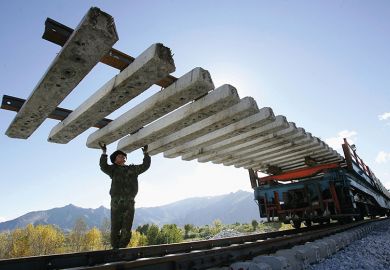A new report from the Canadian Association of University Teachers has found that instead of the “attractive flexibility” university administrators use as a justification for hiring academics on short-term contracts, the reality of such contracts is that they are “discouraging and demoralizing”.
Contract academic staff (CAS) are treated as though they do not belong in the academy, but are merely visitors dropping by the academic space. Stateless within the academy, long-term CAS often find their initial identities as experts and professionals, trained thinkers and researchers have been subsumed by the nature of their contracts – and by the ways in which the existence of their work, expertise and credentials are denied.
If the mission of the academy is the “common good”, how can CAS teach hope or inspire action towards this goal when they feel hopeless? How can they function best for themselves or for their students when they are pushed to the margins and made to feel invisible?
They’re consistently given the message loud and clear that their PhDs, other degrees and publications – produced despite the lack of institutional and national financial or other support – don’t count, and that they are merely machines to fill in temporary gaps, even if they have been teaching at an institution for 20 years. They are not entitled to office space, benefits or any other employment rights.
The report has shown us that the narrative repeated by administrators about the motivations, character traits and academic abilities of those who have been hired on contract is simply not accurate.
A false persona of the dilettante and hobbyist is imposed upon fully committed CAS who face dizzying workloads for a “paltry sum”, while administrators continue to be dismissive about the price paid in lost knowledge, and physical and mental health.
Although some of us perhaps have better conditions in our jobs, as members of a department that works hard to be considerate about schedules and resources, we still face many of the demoralising aspects of a job without security.
The nature of our contracts creates the automatic reaction that we must be lesser academics and lesser human beings. Our contracts must be renewed yearly – and every few years there is some kind of crisis that attempts to erase whatever modicum of job security is in our collective agreement.
The resulting stress and anxiety cannot be overstated. Deep depression affects many of us, because our good and hard work remains unacknowledged.
Many colleagues find themselves on employment and social assistance during fallow terms. There is no mechanism for sabbaticals, which provide research time and relief from teaching.
I, like my casualised peers, wish to belong in the academy. We feel we have that right, based on our degrees, on our continuing research, on the extra unpaid service we often provide and on the work we do to educate students in the classroom, by keeping current in our disciplinary fields and in pedagogical practices.
I feel such pressure to demonstrate my value to the university that I work for many, many hours beyond the pay represented by my salary. The solution is not to cut my opportunities to contribute or to build my CV, nor just to replace me with another volunteer, but to pay a fair compensation for such work.
It is important to counter the unnecessary atmosphere of enmity and exclusion created by a two-tier system in which the privilege for one group of academics can only be recognised by the lack of privilege or rights for another.
When such divisions begin to be accepted as natural, it becomes necessary to maintain and insist on the narrative that one group of academics works hard, has special abilities and contributes significantly to the world, while the other is the necessary but unacknowledged shadow and shame of the academic world.
I would like to see tenured and non-tenure track academics bypass some of the divisive narratives we encounter that result in colleagues turning on each other instead of working together towards knowledge-making and harmony within the academy.
I would like us to praise and support each other’s strengths, rather than tearing each other down. Precarious employment, which keeps the spectre of disappearance and the promise of the erasure of our identities at the fore of our daily lives, weakens the academy as a whole by distracting us from the mission of the common good.
Sarika Bose is chair of the Canadian Association of University Teachers CAS committee and a lecturer in the department of English at the University of British Columbia.
Register to continue
Why register?
- Registration is free and only takes a moment
- Once registered, you can read 3 articles a month
- Sign up for our newsletter
Subscribe
Or subscribe for unlimited access to:
- Unlimited access to news, views, insights & reviews
- Digital editions
- Digital access to THE’s university and college rankings analysis
Already registered or a current subscriber?




